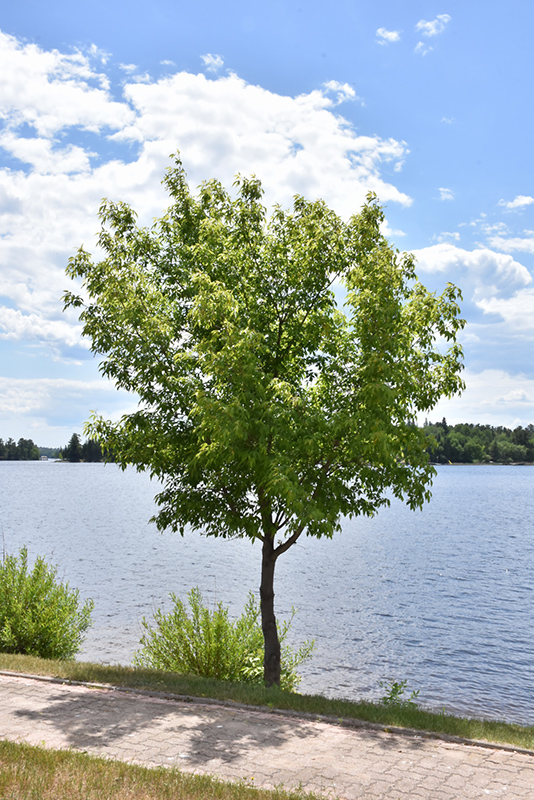Height: 39 feet
Spread: 33 feet
Sunlight:
![]()
Hardiness Zone: 2a
Other Names: Baron Box Elder
Description:
This male selection is a dramatic improvement on the species with its uniformly rounded shape, does not produce prolific seeds like the species; a very durable shade tree for the toughest of locations and an all-round better choice
Ornamental Features
Manitoba Maple has emerald green deciduous foliage on a tree with a round habit of growth. The compound leaves turn yellow in fall.
Landscape Attributes
Manitoba Maple is a deciduous tree with a more or less rounded form. Its relatively coarse texture can be used to stand it apart from other landscape plants with finer foliage.
This tree will require occasional maintenance and upkeep, and should only be pruned in summer after the leaves have fully developed, as it may 'bleed' sap if pruned in late winter or early spring. It is a good choice for attracting birds to your yard. Gardeners should be aware of the following characteristic(s) that may warrant special consideration;
- Insects
Manitoba Maple is recommended for the following landscape applications;
- Shade
Planting & Growing
Manitoba Maple will grow to be about 39 feet tall at maturity, with a spread of 33 feet. It has a high canopy of foliage that sits well above the ground, and should not be planted underneath power lines. As it matures, the lower branches of this tree can be strategically removed to create a high enough canopy to support unobstructed human traffic underneath. It grows at a fast rate, and under ideal conditions can be expected to live for 50 years or more.
This tree should only be grown in full sunlight. It is an amazingly adaptable plant, tolerating both dry conditions and even some standing water. It is considered to be drought-tolerant, and thus makes an ideal choice for xeriscaping or the moisture-conserving landscape. It is not particular as to soil type or pH. It is highly tolerant of urban pollution and will even thrive in inner city environments. This is a selection of a native North American species.



